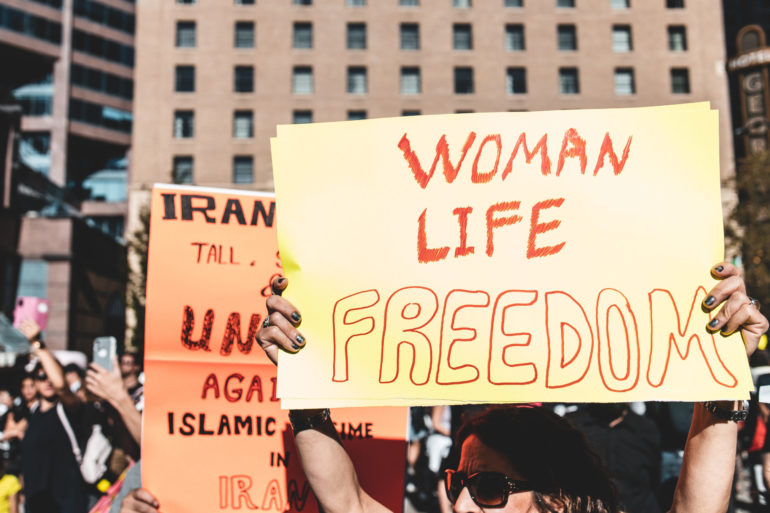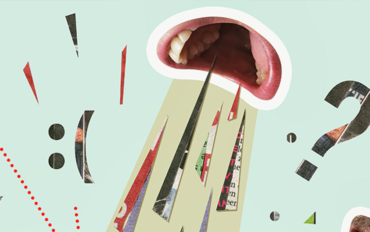I was born in Iran, and at the age of 10, my family and I absconded from multi-systemic injustices and immigrated to the US in hopes of extended opportunities and freedom. I was about three years old when the Islamic Republic overthrew the Shah of Iran and the Iran-Iraq War started. As the war grew more intense, and the Islamic Republic’s new law of the land turned Iran into a dictatorship and the oppression difficult to tolerate, my family and I had to leave the country abruptly and came to the US with virtually nothing. My family experienced a number of developmental transitions due to changes and struggles with acculturation, but eventually assimilated into our new environment. Still, the aching pain of what has become of our motherland continued and we were constantly being reminded of just how we do not fully belong in our new home with our Iranian heritage.
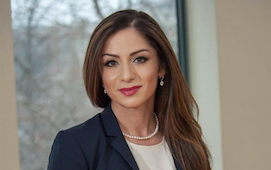 Today, we are witnessing a tipping point for the Islamic Republic of Iran. The news emerging from inside of Iran describes a truly courageous fight for freedom from oppression. The Islamic Republic government is among the most brutal in the world when it comes to repression. These are dark, yet hopeful days for the entire nation of Iran and the Iranian Diasporic population as a widespread response by the people who have united against the Iranian regime’s brutality has left the world in awe of what courage really means. I am certain that by now you have all heard about Mahsa Amini (#MahsaAmini), the 22-year-old Iranian woman who was brutally beaten and killed by the Iranian government’s “Morality Police” for not wearing her hijab (headscarf) properly. The outrage in response to her killing has led to mass demonstrations, followed by rallies and protests in more than 90 cities in Iran, as well as in every major city and country worldwide, against the Iranian Islamic Regime. Mahsa’s killing has led to a full-blown revolution led by the women of Iran who have made it clear that they are no longer going to tolerate the oppression they have lived through for the past 43 years. The great Persian Poet Rumi once said: “Let your pain be your cure,” and that is exactly what we are witnessing today. As marriage and family therapists, we know the importance of feeling all emotions and that there is no such thing as “bad” emotions. Rumi’s words indicate just that: there is a lesson in the pain or suffering that is waiting for us, but most of us tend to ignore the pain, and therefore miss the lesson.
Today, we are witnessing a tipping point for the Islamic Republic of Iran. The news emerging from inside of Iran describes a truly courageous fight for freedom from oppression. The Islamic Republic government is among the most brutal in the world when it comes to repression. These are dark, yet hopeful days for the entire nation of Iran and the Iranian Diasporic population as a widespread response by the people who have united against the Iranian regime’s brutality has left the world in awe of what courage really means. I am certain that by now you have all heard about Mahsa Amini (#MahsaAmini), the 22-year-old Iranian woman who was brutally beaten and killed by the Iranian government’s “Morality Police” for not wearing her hijab (headscarf) properly. The outrage in response to her killing has led to mass demonstrations, followed by rallies and protests in more than 90 cities in Iran, as well as in every major city and country worldwide, against the Iranian Islamic Regime. Mahsa’s killing has led to a full-blown revolution led by the women of Iran who have made it clear that they are no longer going to tolerate the oppression they have lived through for the past 43 years. The great Persian Poet Rumi once said: “Let your pain be your cure,” and that is exactly what we are witnessing today. As marriage and family therapists, we know the importance of feeling all emotions and that there is no such thing as “bad” emotions. Rumi’s words indicate just that: there is a lesson in the pain or suffering that is waiting for us, but most of us tend to ignore the pain, and therefore miss the lesson.
Generation Z, which comprises the largest age demographic in the country of Iran, is courageously leading this uprising, and the young girls and women who are willing to die for their freedom have captured the attention of the world in the past few weeks. Now, this revolution has begun to take a new form and comprises demonstrations that include every age group, ethnicities, religiousness, and socioeconomic status: a beautiful expression of the accumulated rage the regime has nurtured in the people of Iran through unimaginable chronic social and economic challenges. The people are chanting with one voice “Zan, Zendegi, Azadi” which translates to “Women, Life, Freedom” and some version of “we have nothing to lose.” Because Iran’s internet access has been cutoff, companies such as Starlink and different VPN filter breakers have been trying to send internet services through satellite so that the people of Iran can share their videos and stories with the world, and it has become a global effort to share their stories on different social media platforms using hashtags (#MahsaAmini, #OPIran, #IranProtest2022, and #WomanLifeFreedom) to spread awareness about the current situation. It is clear that their messages have inspired the many different groups to unite, with echoes in various movements currently activated around the world, including the United States. As Dan Rather has stated about the current Iranian uprising, “It is impossible to overstate the courage of these actions. They represent a direct repudiation of a system that oppresses women at all sates of life. Iranian women are fighting for the most basic of human rights: the right to be themselves. In this fight, they are of course not alone. Around the globe societies that differ in such matters as religion, race, ethnicity, or even form of government often have one thing in common – women have fewer rights then their male counterparts. Their work is less valued, their autonomy questioned, their voices silenced. Most if at not all present-day societies have been constructed by men to further domination by men. This dynamic is fundamentally incompatible with a truly just and equitable society, no matter how soaring the rhetoric of one’s constitution.”
It should not go unnoticed that in 539 BC, the armies of Cyrus the Great, the first King of ancient Persia, marked a major advance for human rights when he freed the slaves, declared that all people had the right to choose their own religion, and established racial equality. It is exciting to see that in the same land, the descendants of King Cyrus are now willing to die for their own human rights. One thing that we have all witnessed in the past several years of the pandemic is that global events are part of a chain that impact all of us, sometimes directly and many times indirectly, in a way that cannot be overlooked or ignored. If they are ignored, we miss opportunities to fully understand the impact of systems on one another. As culturally-informed MFTs who are dedicated to systemic practices and support social justice for all, the current situation in Iran is a valuable opportunity to start discussions about how larger systems impact individuals and families, seek consultation and supervision to fully understand how to incorporate larger system’s impact on our own clients, and strengthen our integrative systemic conceptualization and practice.
This historic moment that we are witnessing in Iran is a great example of how systems are interconnected and impact one another. When looking at the Integrative Systemic Therapy (IST) Web of Human Experience, it is easy to see that longstanding patterns and chronic problem sequences that impact every level of the system are interlocked in a way that has led to the start of the revolution that we are seeing today. To systemically assess the impact on any individual, one must be able to fully conceptualize the integrative aspect of how each hypothesizing metaframework – Organization, Development, Culture, Gender, Spirituality, Biology, and Mind – fits into the conceptualization of the situation; each part of which is worthy of hours of discussion and analysis.
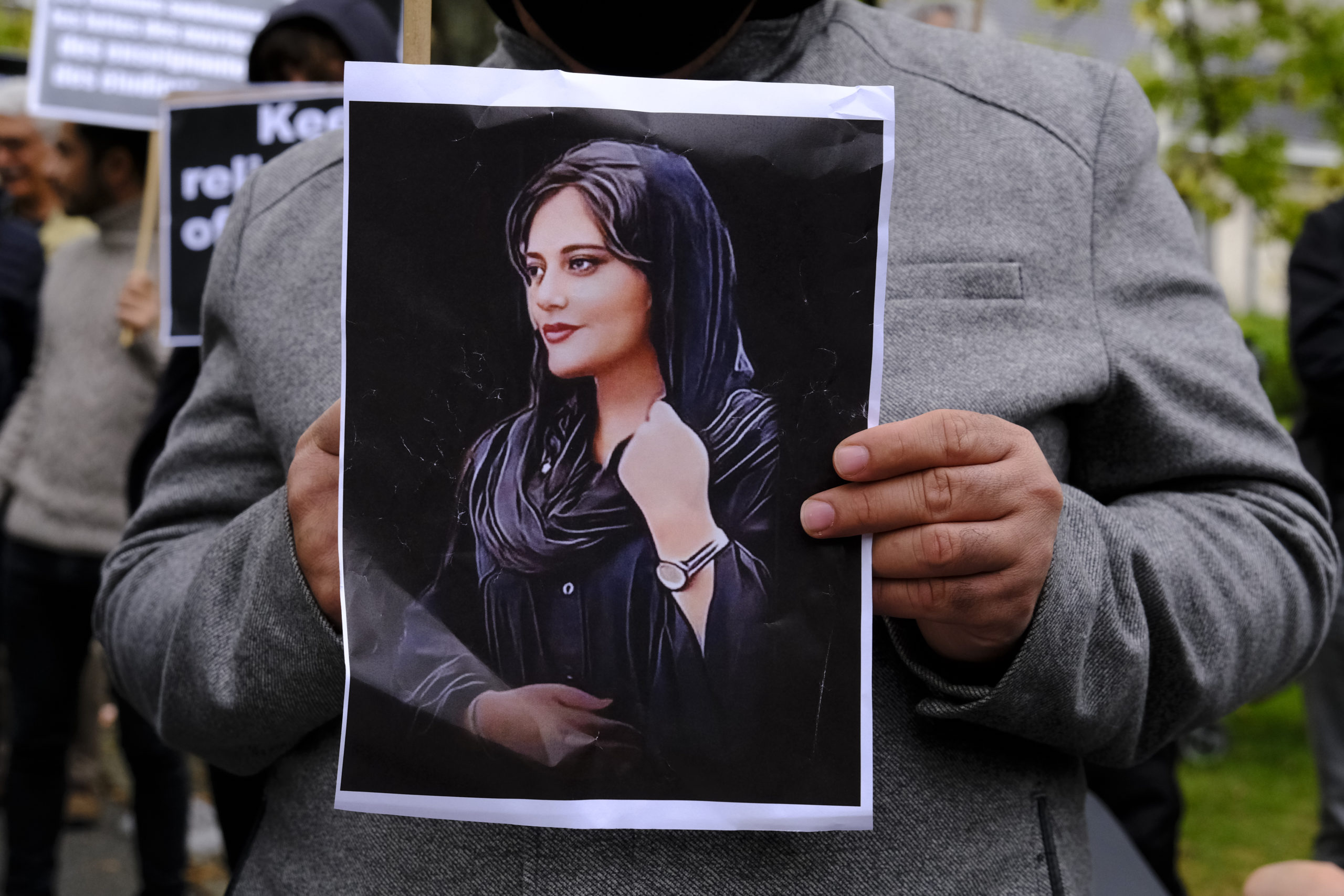
The indirect systems impacting the current situation in Iran also impact the Iranian diaspora population, including yours truly. Since a large part of the events also highlight the Gender Metaframework, your female clients from different backgrounds and life experiences all may experience some of the same triggers without always seeing the connection between how what they are currently feeling is related to these global events that have started as a result of the oppression of women. This is something you may want to listen for and explore as your clients from any background may begin to express certain changes in their mood or current thought patterns in how they feel about themselves and the world they are living in. The past 13 days may have been some of the most difficult for diasporic individuals, with glimpses of light and hope experienced by many who may be feeling helpless and retraumatized from experiences of PTSD that have led most to their story of migration. I can tell you that to me it feels like experiencing extreme grief and celebration both at the same time, and I am certain I am not alone in this. It has been a true experience of what we all learn about from the transgenerational models of family therapy: the individual is not separate from the system that constructs core structural belief systems and factors that contribute to lifestyle and/or personality development. Thus, a reminder that individuation and balance is a journey that continues throughout the lifespan and is never fully complete.
As MFTs, it is important for us to talk, seek education about the history of migration of particular immigrant groups, and not completely rely on our clients to provide us with this overall education. There are many ways to seek this information, and if you are working with clients who are of Iranian descent, or are first generation Iranian-Americans, be sure to do the work of seeking consultation and supervision to help your clients during these challenging times and allow the current situation to help you fully engage in the integrative, systemic therapy framework that will guide you in your attempt to work with your clients. If you are interested in learning more about my personal experiences, I have written a piece called Through the Eyes of a Child that explains the details of what it was like for me growing up in Iran during the War and the Revolution of the Islamic Republic.
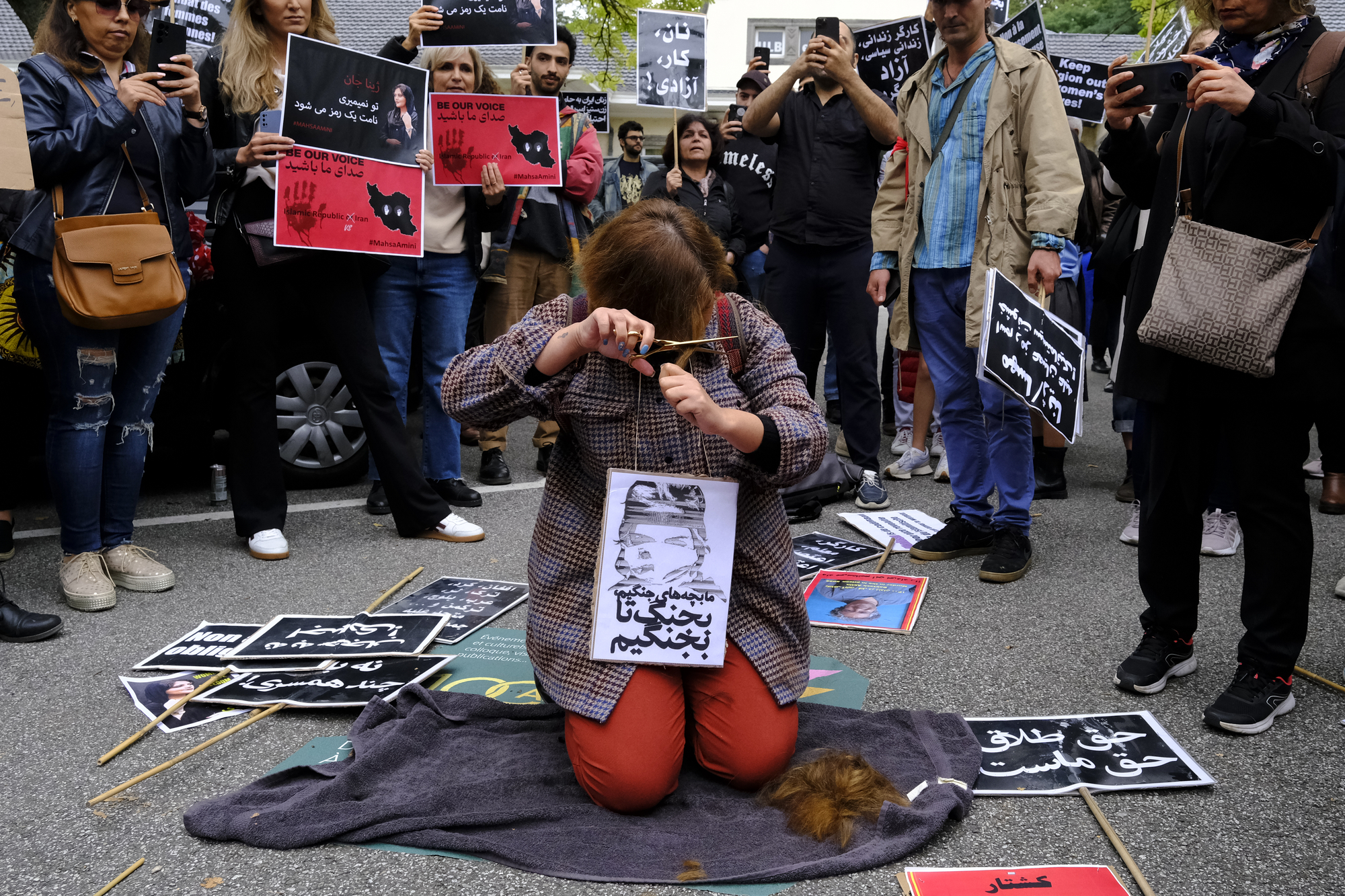
I want you to remember that we all have a social responsibility in speaking up about oppression and that is the only way that we will be able to ensure what has happened to millions of women in Iran and other countries worldwide, does not happen to our generations of daughters. They deserve a better, more equal world, and we can all agree on that. In the end, I will leave you with this quote from Sa’adi Shirazi, a prominent Iranian poet of the medieval period; he was born in 1184, and died in 1283 in Shiraz, Iran. This poem by Sa’adi explains what the concept of empathy truly means:
Human beings are members of a whole
In creation of one essence and Soul
If one member is afflicted with Pain,
Other members uneasy will remain.
If you’ve no sympathy for human pain,
The name of human you cannot retain.
Once again today, we are a witness to a brutal and bloody crackdown by the Islamic Republic government. This regime may not be easily extinguished, but it is clear that no matter how many arrests, tear gas, bullets, and murders they continue to be responsible for, the intimidation tactics are not subduing the efforts of protesters who have started this revolution for freedom. May there be peace and equality for the women of Iran and the women of the world who continue to fight against oppression and injustice with their lives.
For more information on the current situation please see #MahsaAmini on social media.
Peace and prosperity for all.
This article is offered free by AAMFT. If you are interested in accessing members-only content, join today!
The indirect systems impacting the current situation in Iran also impact the Iranian diaspora population, including yours truly.
Bahareh Sahebi, PsyD, is an AAMFT Professional Member holding the Clinical Fellow and Approved Supervisor designations. She is clinical assistant professor of Psychology at Northwestern University, and assistant program director, Marriage and Family Therapy Program. She is a recipient of the 2022 Northwestern University Teaching Excellence Award and the 2018 Dr. Christine Bard Compassion and Skill in Rehabilitation Practice Award. Sahebi is a member of the Board of Directors, IAMFT and co-author of Integrative Systemic Therapy in Practice: A Clinician’s Handbook.
Other articles
Self-Esteem and Social Media Impact
At age 16-17, while I was struggling emotionally to get through high school, I had been the target of a bully for many months, which escalated nearing the end of my senior year. To add insult to injury, this bully was my best friend (or so I thought). This was during the 80s when there was no social media, cell phones, or other electronic/internet access to images. There only existed the daily experience with my peers, magazine pictures, commercials, television shows, etc.
Katharine Larson, MA
Cyber Abuse
When we pause to think about all the many affordances our internet infrastructure and technologically connected world lends us, it’s easy to recognize at least a handful of ways our lives have been made easier. Apps like Venmo and CashApp allow us the convenience of immediately paying a friend back who just paid for our coffee, and location sharing gives us the ability to instantly know whether the Uber your little sister got into took her straight home.
Morgan Lancaster Strickland, PhD
Cyberbullying and Online Gaming
Cyberbullying is bullying that takes place over digital devices like cell phones, computers, and tablets. Cyberbullying can occur through SMS, text, and apps, or online in social media, forums, or gaming where people can view, participate in, or share content. Cyberbullying includes sending, posting, or sharing negative, harmful, false, or mean content about someone else. It can include sharing personal or private information about someone else causing embarrassment or humiliation. Some cyberbullying crosses the line into unlawful or criminal behavior.
